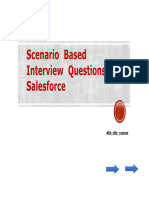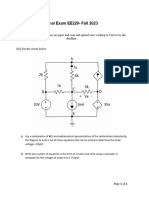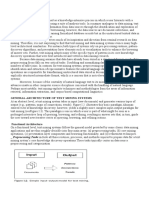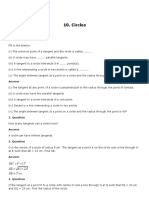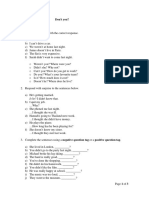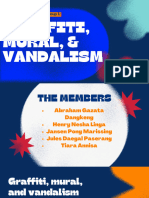0% found this document useful (0 votes)
33 views4 pagesCommon Question
The document is a comprehensive list of 100 questions covering various aspects of Salesforce, including functional knowledge, data management, Apex concepts, Lightning Web Components, integration, and project management skills. Each section addresses specific topics relevant to Salesforce professionals, such as automation tools, data migration, and deployment practices. It serves as a resource for preparing for interviews or assessments in the Salesforce ecosystem.
Uploaded by
Manish Kumar SharmaCopyright
© © All Rights Reserved
We take content rights seriously. If you suspect this is your content, claim it here.
Available Formats
Download as PDF, TXT or read online on Scribd
0% found this document useful (0 votes)
33 views4 pagesCommon Question
The document is a comprehensive list of 100 questions covering various aspects of Salesforce, including functional knowledge, data management, Apex concepts, Lightning Web Components, integration, and project management skills. Each section addresses specific topics relevant to Salesforce professionals, such as automation tools, data migration, and deployment practices. It serves as a resource for preparing for interviews or assessments in the Salesforce ecosystem.
Uploaded by
Manish Kumar SharmaCopyright
© © All Rights Reserved
We take content rights seriously. If you suspect this is your content, claim it here.
Available Formats
Download as PDF, TXT or read online on Scribd
/ 4






















































